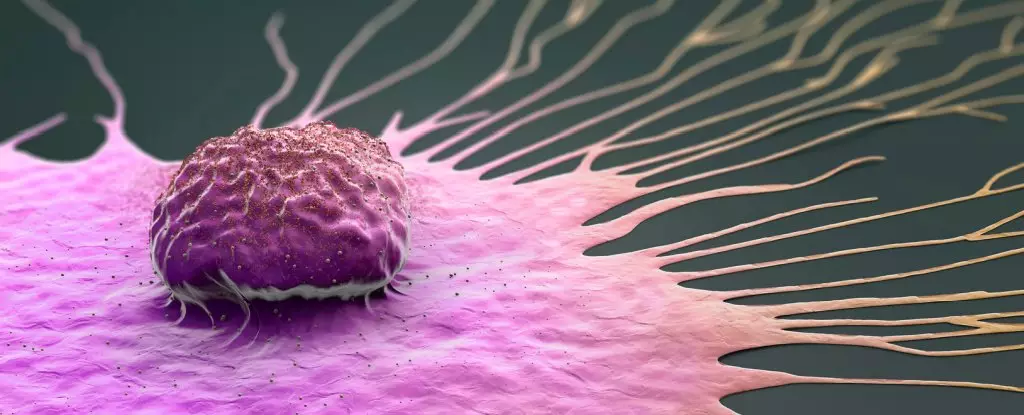

New research has uncovered a previously unknown mechanism for inactivating genes that suppress tumor formation, shedding light on why cancer risk is associated with factors such as an unhealthy diet and unmanaged metabolic conditions like diabetes. The study, conducted by researchers from Singapore and the UK, utilized mouse models, human tissue, and human breast organoids to investigate how changes in glucose metabolism could enhance cancer growth by temporarily disabling a gene known as BRCA2.
The findings of the study challenge the long-standing ‘two-hit’ paradigm proposed by Knudson in 1971, which states that both copies of a tumor suppressor gene must be permanently inactivated for cancer to develop. Recent research has shown that a mutation in one of the BRCA2 genes can increase cancer risk, even without both copies of the gene being mutated. This discovery highlights the crucial role of environmental factors in influencing cancer development and emphasizes the need to understand these connections for effective preventive measures.
The research team observed that cells with a mutation in one copy of BRCA2 were more susceptible to methylglyoxal (MGO), a byproduct of glucose breakdown during glycolysis. High levels of MGO can lead to the formation of harmful compounds that damage DNA and proteins, contributing to disease complications. The study found that MGO can temporarily disable the tumor-suppressing functions of the BRCA2 protein, resulting in cancer-causing mutations. This discovery suggests that disruptions in glucose metabolism can play a significant role in cancer development and progression.
The findings of this study have important implications for cancer prevention and early detection strategies. The ability to detect MGO through a simple blood test for HbA1C could potentially serve as a marker for individuals at higher risk of cancer due to poor diet or uncontrolled diabetes. Understanding the impact of diet and metabolic disorders on cancer risk can lead to personalized interventions that target these specific pathways, ultimately improving outcomes for cancer patients.
While the results of this study provide valuable insights into the link between glucose metabolism, gene inactivation, and cancer risk, further research is needed to validate these findings in larger clinical studies and animal models. By exploring the connections between dietary factors, metabolic conditions like diabetes, and cancer development, researchers can develop more effective prevention and treatment strategies that address the root causes of the disease. Only through continued investigation and collaboration can we unlock the full potential of this groundbreaking research.
In the world of pharmaceuticals, innovation often hinges on finding new compounds that can lead…
In the heart of the Amazon basin, drastic climate changes present an alarming reality that…
Air fryers have rapidly surged in popularity, captivating home cooks and culinary enthusiasts alike. When…
In an era where technology and social media reign, the importance of sleep often takes…
In an era where environmental consciousness is paramount, the maritime industry has long been scrutinized…
Radionuclides, often relegated to discussions surrounding nuclear energy and radioactive waste, have far-ranging implications for…
This website uses cookies.